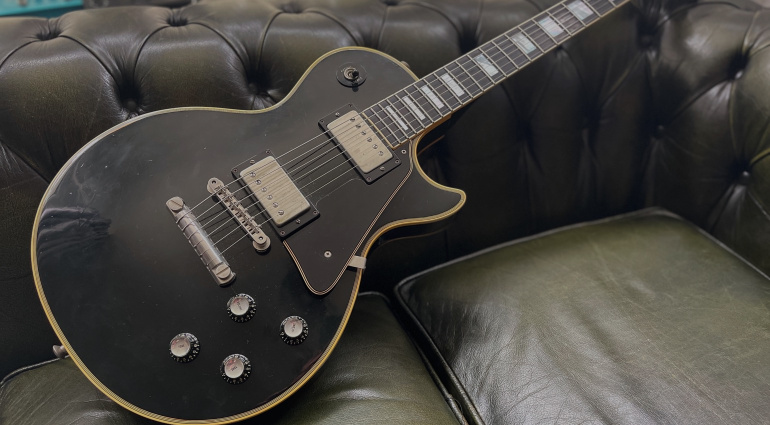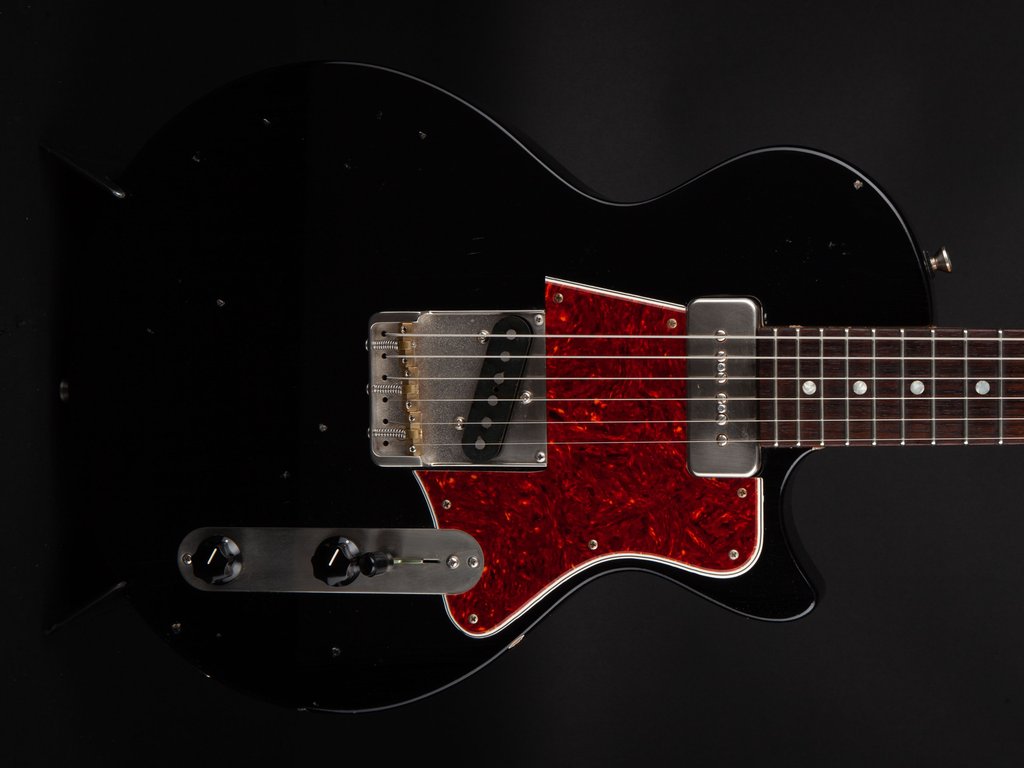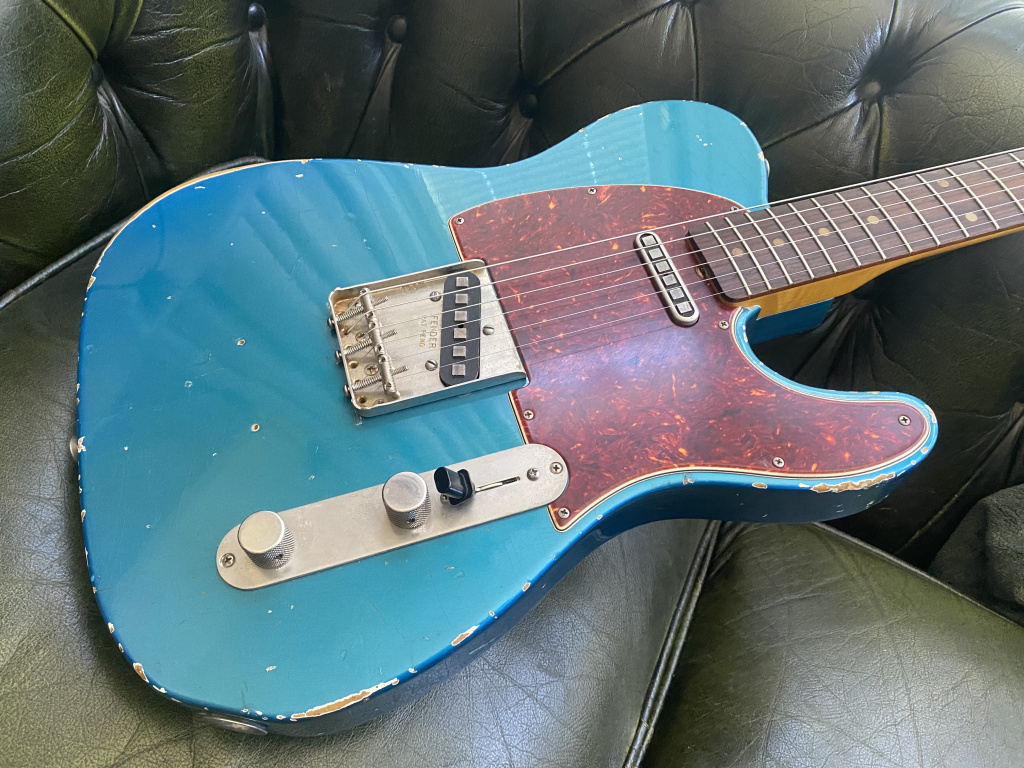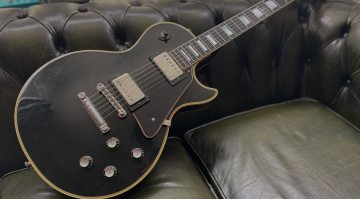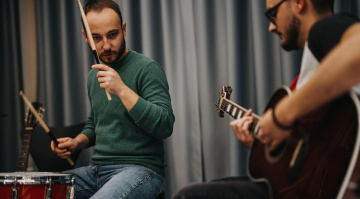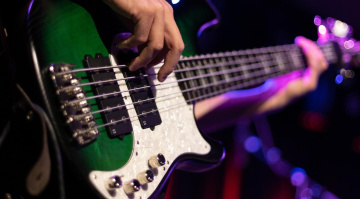Chasing Tone: Guitarists Never Ending Quest
Is Tone in the fingers or the gear?
This week, I wanted to talk about that fabled phrase “Guitar Tone” and, as a guitarist, why we spend so much time chasing it.
Chasing Tone
I’ve played the guitar for many years. I started as a teenager and have played ever since. So I have well over 35 years (closer to 40 years) of experience under my belt. This quest we guitarists have for finding the perfect tone is one I have certainly indulged in myself.
I’m going to ramble a bit here, and I will no doubt go off piste throughout this article.
Now, is it the gear that gets us there? Or, is it us? As a musician, I need to learn to play my instrument first, then (hopefully) play with other musicians.
As I’ve played for a while now, I often discuss the phrase ‘tone’ with other guitarists. Now, is tone just a way of referring to our specific sound or sonic signature, or is it more a combination of note choice, phrasing, and dynamics?
As we have to create the note physically (unlike a pianist who has to hit the correct key), our finger pressure, timing, and ability to make a clean note are the fundamental building blocks of our sound.
Factor in vibrato, string bends, legato playing, and knowing when not to play, and it all starts to help shape our identity as guitar players. You could argue that phrasing and timing don’t affect the tonality directly. I would counter that, saying the speed/phrasing/timing/intensity actually have a direct impact on our guitar’s voice.
Good tone will undoubtedly mean different things to different musicians, and musical genres will also come into play in this argument. Jazz players versus Swedish Black Metal players is a prime example of how genres influence what we each call good tone.
Tone Quest
I, for example, really enjoy guitar players who know when to shut up and leave some noticeable space in the music—letting the notes breathe and letting them hang in time.
Now, this might sound a little ‘off topic’, but what I’m talking about is similar to the way guitarists describe ‘note bloom’, just rather than at the beginning of the note, it’s at the end.
Now, we could let that note die naturally, or we could add some subtle vibrato and make it something entirely different.
Attack, Decay, Sustain, Release
Yes, I know Attack, Decay, Sustain, Release, or ADSR is something we usually associate with synthesis. However, it also affects our tonality: we have a softer, slower attack with our fingers, versus a more determined attack with a thick plectrum.
The decay, sustain, and release also factor into this, and we can affect them in real time through our phrasing, speed, and the amount of pressure we apply with our fingers.
Gear for Tone?
Some people will argue that tone is in the fingers, while others will say that the gear we use has a more noticeable impact on tone. I won’t argue either way, as I understand there is an element of both for me personally.
Humbuckers, single-coils, P90s... I love them all and will experiment with them until I keel over and die.
Don’t get me started on tube amps versus modelling!
Suppose I choose to play through a 50-watt Plexi-style amp head at full gig volume with a drummer and bass player behind me. Then I have to use the amp’s EQ to make my tone sit in that mix; it gets even more complex if there is another guitarist in the band, as we don’t want to clash.
I know that when I play live, I have to cut through the cymbals and snare of a drum kit without muddying the low end, which is already crowded by a kick drum, floor toms, and the bass player.
Therefore, I may push my mids with the amp EQ, or I may kick the front end with my beloved BOSS SD-1 (I love these pedals and will always have a place for them in my setup).

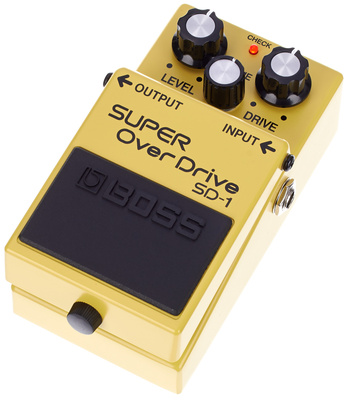
Now, I have found whatever guitar I play, and I tend to favour Telecasters and Les Pauls (the black Custom in this article and the blue Tele below), when playing live, I always gravitate to a Plexi-style amp. So gear must have a part in my personal ‘tone quest’ as I don’t get on with Fenders, Mesa Boogies, or Peaveys, etc.
Is Tone Important?
Yes, tone is always going to be a massive factor in our world as guitar players. Is there a correct answer to this? Certainly not. We all like different things, and we all like a variety of music styles, which must mean we will all enjoy different tones.
I do believe that tone is important, and personally, I think a lot of what we describe as tone comes from us as musicians and our gear. Adverts for new gear will tell you that you will get great tone from whatever it is they are trying to sell you.
I’ve owned more than one Klon Centaur, gigged with them for over a decade alongside my SD-1, and I’ll guarantee that no one in the audience (guitarists included) could tell when I used another overdrive pedal.
I know for certain what is essential: timing and knowing when to shut up. It obviously helps if you can play in tune and in time as a musician, so spend more time on perfecting that side of your guitar playing.
What we hear on records has been fed through a mixing desk, with an EQ section that probably costs more than your whole guitar rig.
It was then more than likely fed through some studio outboard effects and tweaked to perfection.
Finally, a mastering engineer made the whole song, or series of songs on an album, sound balanced and presented them in a way that would make the whole band sound great (unless you played bass on a particular Metallica album in the late ’80s).
So Should We Chase Tone?
Yes, of course we should. As musicians, it is our job (and we love it) to experiment with sound, tonality, and time. As an artist, you should wallow in the joy of finding new sounds and experimenting with your sonic signature.
My personal guiding light for tone will always be Link Wray’s Rumble. I heard this as a young kid, and I was awestruck by the attitude and power of this track. No words. Literally no lyrics, and yet I knew exactly what this track was saying.
It still sends shivers down my spine to this day, and for me, it encapsulates great guitar tone.
I don’t play like Link Wray, I don’t use any of the equipment he used, and yet my favourite guitar tone is based on this track. Your favourite guitar tones will, no doubt, do the same for you.
Keep chasing tone and enjoy the ride.

 4,8 / 5,0 |
4,8 / 5,0 | 